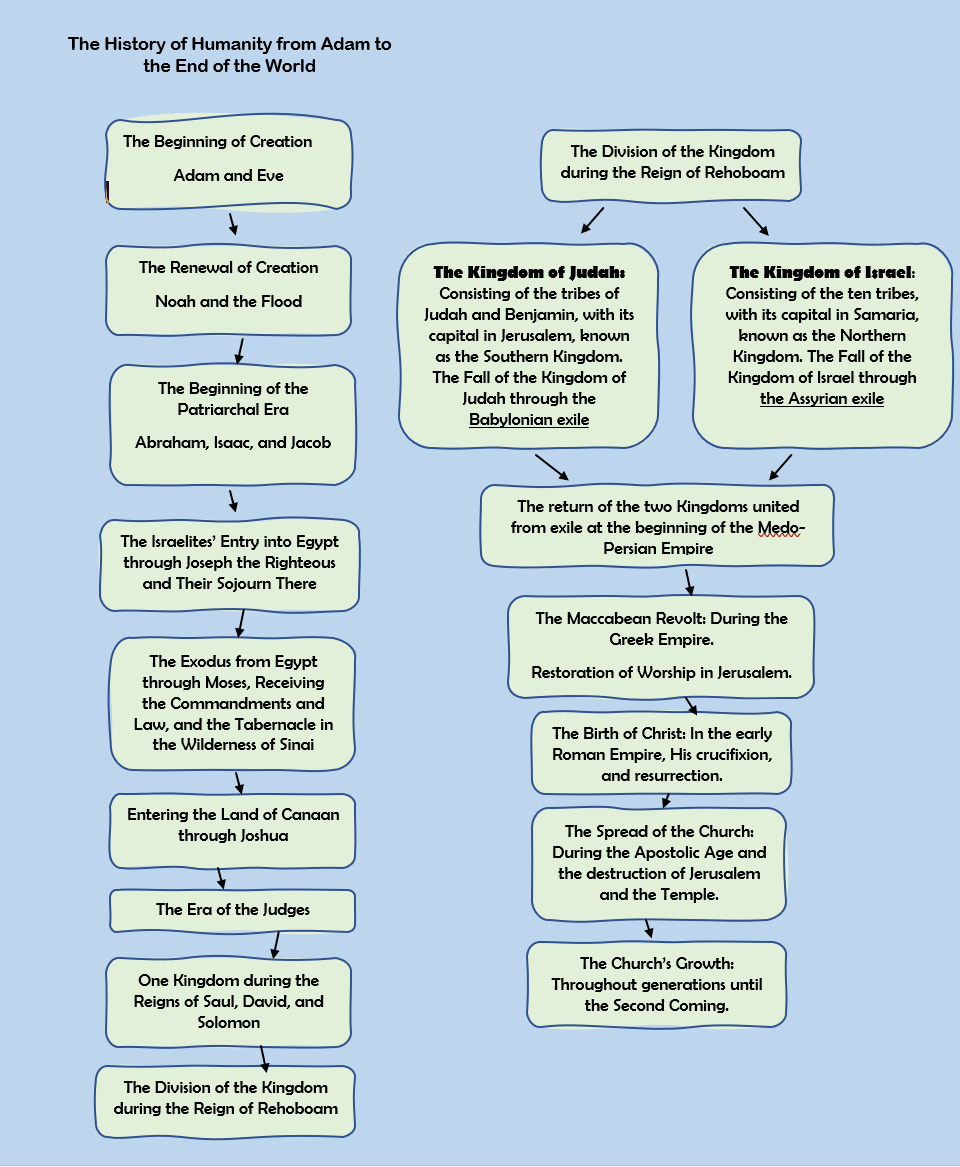Week 4: Isaiah's Messianic Prophecies
Week 4: Isaiah's Messianic Prophecies
The History of Humanity from Adam to the End of the World
Introduction:
- Isaiah:
- Isaiah was of royal lineage, the nephew of King Amaziah. He had two sons, Shear-Jashub and Maher-Shalal-Hash-Baz, whose names symbolized exile and return from captivity. Coming from a wealthy and educated family, Isaiah prophesied for sixty years, beginning at the age of twenty and continuing through the reigns of four kings: Uzziah, Jotham, Ahaz, and Hezekiah. He was martyred at eighty years old during the reign of King Manasseh
Date:
- Isaiah began his prophetic ministry in the year 740 B.C. and continued until the year 680 B.C., meaning he wrote for about sixty years during his prophecy. In the days of Uzziah, Jotham, Ahaz, and Hezekiah, kings of Judah.
- His ministry commences around the time the Northern kingdom is carried into captivity (722 BC ). About 140 years before the Southern kingdom went into captivity ( 586BC ).
Major Theme:
- Repent and turn back to God
- Rely on God rather than earthly powers and possessions
- Warning against outward religious appearances, as it is considered hypocrisy.
- Hope in the awaited Messiah, the Savior, and the new life in Him.
Outline:
Isaiah
- God the disciplinarian: (Chapters 1-35)
- A call to repentance for the kingdom of Judah, Israel, and the surrounding nations.
- King Uzziah (Chapters 1-5)
- King Jotham (Chapter 6)
- King Ahaz (Chapters 7-14)
- King Hezekiah (Chapters 15- 66)
- A call to repentance for the kingdom of Judah, Israel, and the surrounding nations.
- God the victorious (Chapters 36-39)
- Judah's victory over Assyria by God's power and the healing of king Hezekiah
- The Messiah the savior and God's promises (Chapters 40-66)
- Prophecies about the incarnation of Christ, His crucifixion, and resurrection.
Objective: Week 4
- Isaiah's Messianic Prophecies
Resources:
- Catena Bible Commentary
- Fr. Tadros Yacoub Malaty (Book of Isaiah)
- Fr Dawoud Lamie Bible study (Arabic)
- Fr Luka Maher Bible study (Arabic)
Reading:
- Isaiah
- Chapters 51-53
Key verse(s):
- "Awake, awake, put on strength, O arm of the Lord! Awake as in the ancient days, in the generations of old. Are You not the arm that cut Rahab apart, And wounded the serpent?." Isaiah 51:9
Comments:
Isaiah chapter 51:
- A call for unity with God and to enjoy the work of redemption.
- A call to unite with God the Redeemer. God invites His people who desire to be with Him to come together and follow His word. In verse 2, He reminds them of their humble beginnings, which were filled with desolation. Nevertheless, God saved them and bestowed His blessings upon His people.
- God promises His people through the Church of the New Testament. He assures them that His promises of salvation are everlasting, unlike the temporary nature of earthly things.
- God comforts His people and calls them to awaken. He redirects His wrath toward the enemies of His people.
Isaiah Chapter 52:
- Call for Repentance:
- Verse 1: "Awake, awake!" is a call to repent and rise from the deep slumber of sin. "Put on your beautiful garments" signifies that while sin leaves us exposed, repentance restores and covers us.
- The prophet Isaiah prophesies the incarnation of the Son of God in verse 13, who will redeem His people and reveal His salvation to them.
- Verse 13: "Behold, My Servant." The term "Servant" is capitalized because it refers to the Son of God, the Messiah. The phrases "exalted, extolled, and very high" describe the characteristics of God.
Isaiah Chapter 53:
- "The arm of the Lord" refers to the Son of God
- Verse 2-3: The Jews had certain expectations for the Messiah that did not match Christ’s humble beginnings and His life filled with suffering.
- He carried our sins and endured the punishment we deserved, providing salvation through His crucifixion. His suffering is symbolized by the thorns, nails, and spear that inflicted pain upon Him, yet through it, He saved us.

